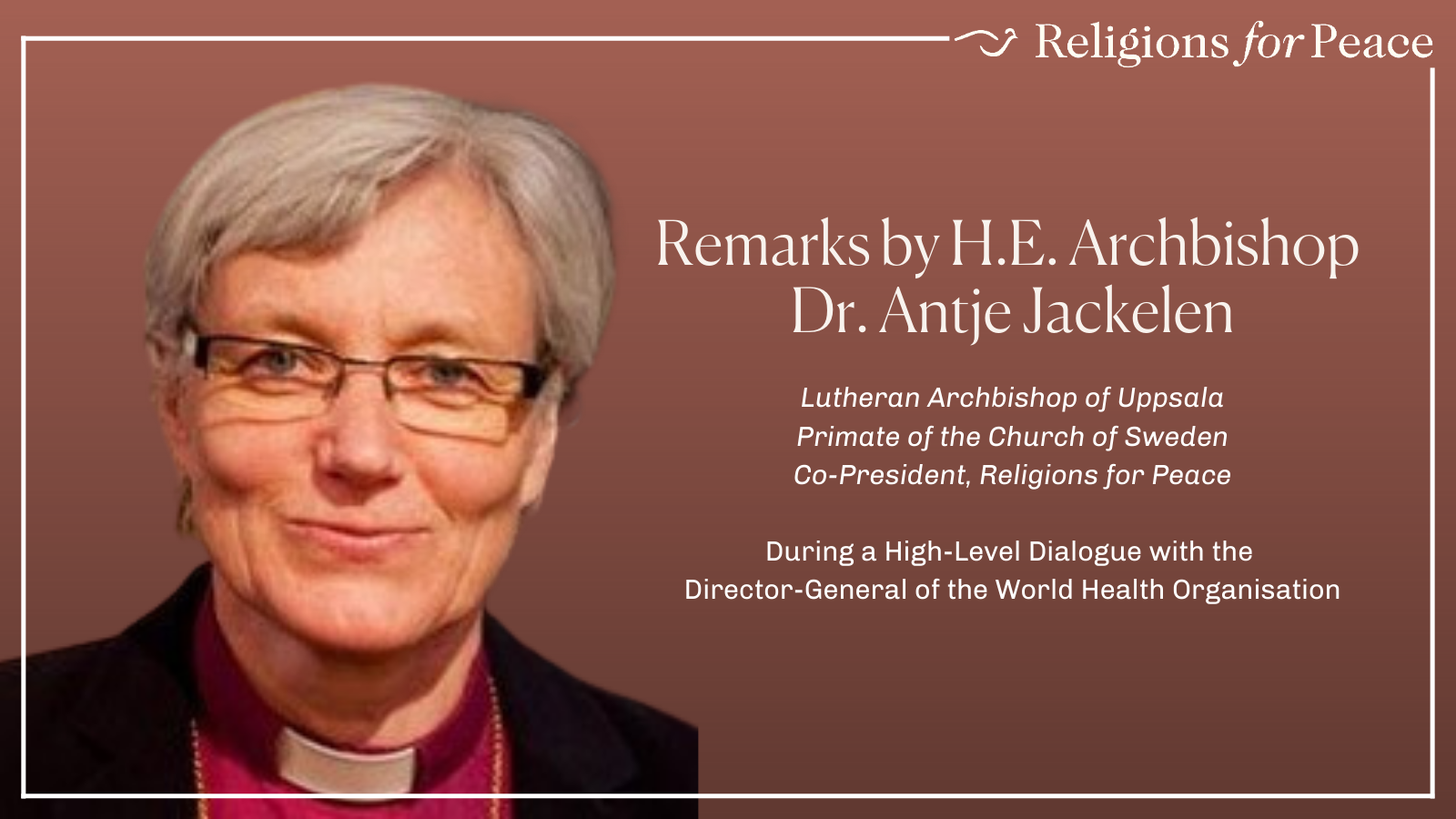Your Excellency, thank you for this opportunity to dialogue.
Please receive my sincere appreciation for your engagement with faith-based communities and their leadership.
(I very much resonate with what Rev Niwano said about the community response and, having a professional background in science-an-religion myself, with what Rabbi Rosen said about the necessity to bring those together.)
We know by now that the pandemic has revealed deep inequality and fragility within the human family, while at the same time highlighting our radical interdependence. Probably more than ever, multi-faith approaches are called for to counteract destructive forces and to foster powers of justice and healing.
We know very well that until the most vulnerable among us are safe, no one is really safe. Hence, the inequity in the global distribution of vaccines is extremely worrying. To me, this looks like the consequence of the perilous cocktail of five dangerous Ps that have intoxicated large parts of the world. Namely, polarization, populism, protectionism, post-truth and patriarchy. This toxic cocktail jeopardizes multilateralism, international cooperation, solidarity and justice. It has conspiracy theories thrive and undermines the implementation of Human Rights.
Faith communities, though never infallible, are a necessary antidote. With an ethics of care for the most vulnerable, they can provide health services, counteract and prevent domestic violence, work against stigma and scapegoating, invest their money wisely, nurture existential health and offer a solid ground of hope, especially in times of need and great pressure.
Multi-faith approaches add extra value to all of this. We should not do alone what we can do better together. Since most of the world’s population self-identify as members of a faith community, faith needs to be engaged at all levels. It has a role in meaning-making and truthseeking, as well as in motivating agents of change.
The global community cannot thrive without the glocal approach (global and local at the same time) that is so characteristic of many faith traditions. I would like to conclude by saying that the ongoing pandemic continues to strengthen our commitment to freedom of religion and belief for the sake of the healing of bodies, minds and memories – for the wellbeing of societies and the planet.
